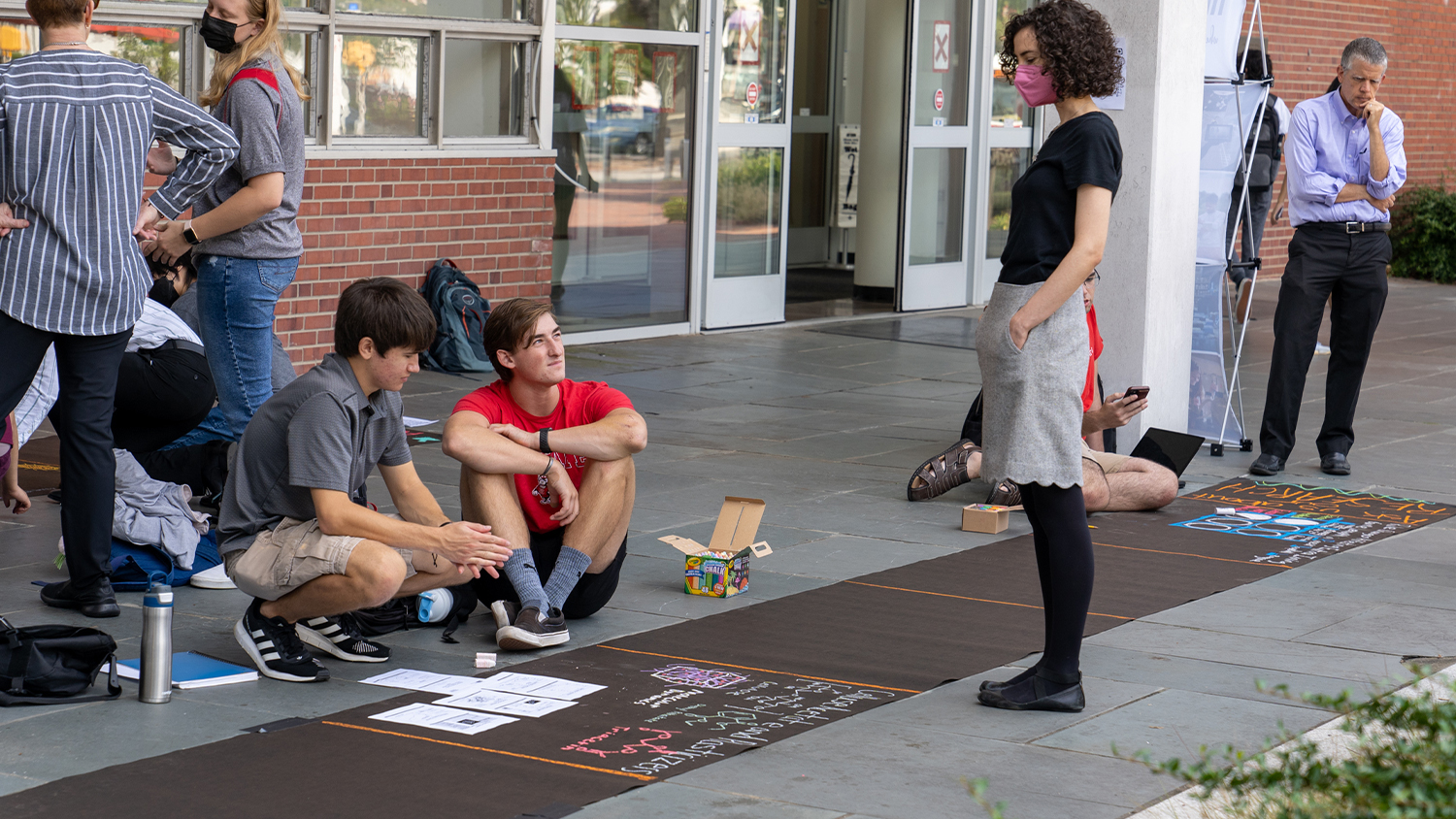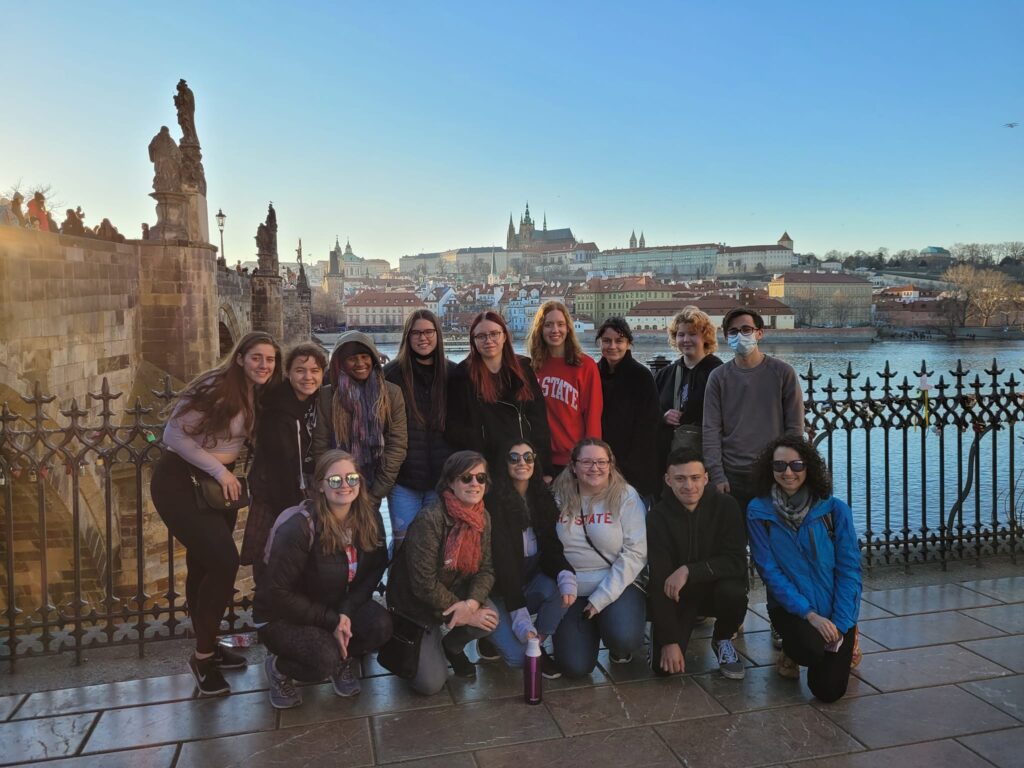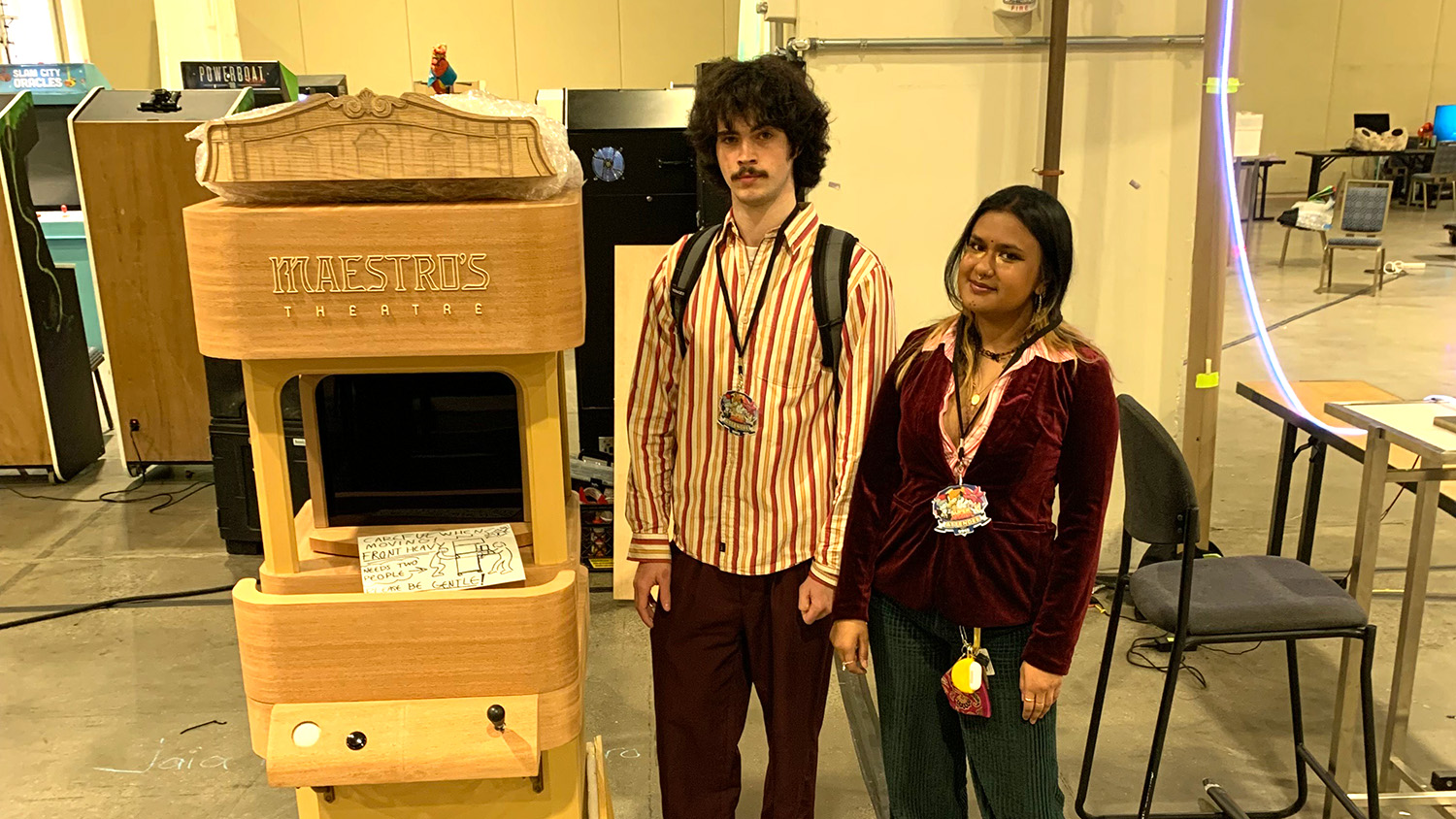Get to Know the Office of Undergraduate Research
The Office of Undergraduate Research works to support discovery-, inquiry-, scholarly- and creativity-based opportunities through mentored research experiences.

By Caleb White, DASA Marketing Intern
A few months ago, we wrote an article introducing two new employees in the Office of Undergraduate Research (OUR), Brittany Valentine and Catherine Showalter. Valentine is the program coordinator and Showalter is the associate director. Recently, we were able to catch up to get more of their thoughts about how OUR supports students, the advantages of doing research as an undergraduate, and how their first few months have been.
Tell us about the Office of Undergraduate Research and its role at NC State.
Catherine:
The Office of Undergraduate Research is a resource center for undergraduates in any field interested in research. We assist with connecting students to research opportunities throughout the year, communicating with mentors, facilitating professional development, funding for projects, disseminating work, and any other related needs. We support all facets of the research process and navigating research on campus (and beyond) for students. We also help mentors develop their mentoring skills and expose them to opportunities and funding for students working with them.
What are some of the primary ways your office supports NC State students? In particular, tell us about funding/awards opportunities, conferences, etc.
Catherine:
The OUR assists with the initial steps of looking for opportunities and reaching out to mentors, as well as the final stages of disseminating. We help students navigate the myriad opportunities for gaining research experience, including research intensive courses; being a research assistant; volunteering in a research space; doing independent projects, internships or working with other groups on research; research abroad; and summer research programs. The OUR supports students via funding for projects every semester, travel funding to share their work at conferences, funding for research assistants, and other funds dependent on initiatives. Every year we offer a few events for students to share their work at State and elsewhere, including the NC State Undergraduate Research and Creativity Symposium (one held in the spring and one in the summer), the Sidewalk Symposium (one held in fall and one in spring), the State of North Carolina Undergraduate Research and Creativity Symposium, ACC Meeting of the Minds, Summer programs, National Conference on Undergraduate Research, etc.

The team is still relatively new! How has the year gone so far? Are there any new ideas or initiatives you’ve implemented?
Brittany:
The beginning of this year certainly had its challenges, but it allowed us to grow together and make the office our own. The ideas and initiatives are coming, and we are excited to share them with all undergraduate researchers.
Catherine:
We’re still learning, but we hope changes with the new team result in changes to provide more effective and efficient support. We’ve added research-related professional development opportunities, added a Spring Sidewalk Symposium, and updated logistics to protocols. By the end of the semester, we hope to have our research database up and running (and updating), and provide more support to mentors in order for them to develop mentoring skills for undergraduate researchers. We’ll be updating and offering new programming next year.
What kinds of opportunities are there for students to get involved with OUR? In particular, tell us about the Research Ambassador program.
Brittany:
There are plenty of opportunities for students to get involved with OUR, such as: becoming a student ambassador, applying for awards, presenting at symposiums, etc. Becoming an OUR ambassador allows students to help their peers who have questions about undergraduate research, along with providing any tips and tricks along the way.
Catherine:
Students who have at least one year of research experience, have some presentation and/or publication experience, are willing and excited to assist other students with their research experiences, and are enrolled as an undergraduate student, can become a research ambassador. This is an opportunity to develop leadership, communication and professional skills, since a research ambassador meets with students who are interested in research opportunities, helps students develop their communications with professors, presents at various events (e.g., first-year classes, orientations) about the OUR, represents and helps with events held by the OUR (e.g., Symposium), and provides a reflection on research from their personal experiences.
Are there any under-used resources or services OUR provides that you’d like students to know more about?
Catherine:
The OUR will help support the dissemination of your project; submit an application for a travel award.
We offer a number of help sessions and review support for proposals, posters, presentations, communications with professors, etc. to make sure that you’re putting your best foot forward and/or to raise your chances of being funded.
OUR student research ambassadors are a wealth of information on research-related items at the university and provide peer-to-peer mentoring. They have their own office hours and are happy to meet with students to provide assistance. We also hire ambassadors from different colleges to try to ensure there is someone who can provide information that is more specific to each student’s area of interest.
What do you think are some of the biggest advantages to doing research as an undergraduate?
Catherine:
There are many advantages, but two stand above the others. One is that research can help students determine what they want to do and what they do not want to do, all while gaining experience and knowledge. Research can be the starting point to something bigger in many ways. The other advantage is that research provides hands-on experience and the chance to apply knowledge to something “real.” Having this hands-on experience, with the affordance of starting, nurturing and cementing myriad skills for one’s field and/or career, provides students with a solid foundation to discuss their abilities and how they can navigate difficulties when applying to jobs or graduate school.
Anything else you would like the NC State community to know?
Brittany:
“OUR” door is always open.
Catherine:
Don’t be limited by what you think research is “supposed to look like;” all fields complete research in some way, and we are here to support all fields. Research, creativity and inquiry come in so many forms.


